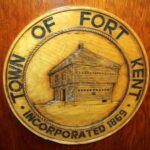Do you know how your ancestors earned their livings? Most of us assume we do through personal knowledge or family stories, but are they completely correct? We may know Grandpa was a farmer or that Great-Uncle Jim was a carpenter but were they always? Did they ever do something else? How do we find out?
The U.S. Census is a wealth of information. It provides a 10-year snapshot of our relatives’ lives showing where they lived, ages, children, length of marriage, and their occupations at the time the census was taken. Censuses allow you to track your relatives and often reveal surprising information about what they did to make a living.
When you do this type of research, you may find your relative moved around frequently and lived somewhere you didn’t know about. You may also find his or her occupation changed with the years and the availability of work. This is especially true during the period of the Great Depression, when unemployment rates ran to over 45 percent of the workforce and higher in some areas. Great-Grandpa may have owned a shop in 1920 but by 1930 is listed as a common laborer, taking work wherever he could find it. Or, a skilled factory worker in 1920 may have been unemployed in 1930 as factories across the country shuttered their buildings putting thousands out of work. You may also find that young children were working to help support the family.
Ten years can seem a long interval in trying to find out how and where an ancestor found work. Other sources can help fill that gap. If your relative married during that time, his or her occupation will be listed in the marriage record. The same is true on the birth records of any children born to a couple. If the couple had several children, you may find your ancestor’s occupation changed between births of the children, revealing changing circumstances for the family. Also, the marriage records of the children usually listed names of parents and occupations. And, town reports will often list people receiving public assistance indicating that the head of the household couldn’t find work or was physically unable to work.
The world wars also affected occupations, and “soldier” or “sailor” can be found on records or just the word “military”. Draft records also will list a man’s occupation and the name of his wife or parent. City and town directories will also give occupations for residents and the names of employers and what those employers manufactured or sold if it was a shop.
Finding out more about our ancestors is always helpful to genealogists and family historians. Nothing was more critical to a family’s survival than what the head of the household did to make a living in prosperous times and hard ones as well. If you haven’t paid attention to what your relatives did for work, don’t neglect that. It often tells a tale of endurance and sacrifice that should be acknowledged by each of us.
Columnist Nancy Battick of Dover-Foxcroft has researched genealogy for over 30 years. She is past president of the Maine Genealogical Society. Reader emails are welcome at nbattick@roadrunner.com. Her semimonthly column is sponsored by the Aroostook County Genealogical Society which meets the fourth Monday of the month except in July and December at the Caribou Library at 6:30 p.m. Guests are always welcome. FMI contact Edwin “J” Bullard at 492-5501.




